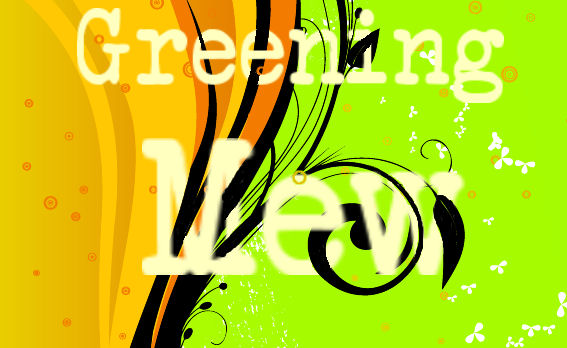In a previous blog, Plastic Palace of Doom, I spoke briefly about the hazards of plastic bottles. My friend asked me to expand on the regulations of water, so here we go.
The big differences between bottled water and tap water is the regulation. Tap water must follow the guidelines of the EPA while bottled water is classified as food, and must follow the FDA.
The EPA's Clean Water Act regulates quality standards with consideration to pollutants and discharges into waters of the United States. The EPA requires water treatment plants to provide residents with a yearly detailed report of their tap water's source, testing results, and contaminant levels if applicable. Some plants post their results online, you can check your local water results by accessing the Consumer Confidence Reports. I checked out Honolulu's site, Board of Watter Supply, and found links to download 2009's report. Honolulu tests for more than 100 different kinds of chemical "contaminants" deemed by Federal and State Law, and conducts over 18,500 tests. They also analyze around 10,000 water samples a year for bacterial contaminants.
Standards are set for maximum allowable contaminants. The maximum level is set where no significant health effects would occur after a lifetime of drinking. All states must follow the EPA guidelines but may also choose to increase the standards for a State level. If you're unsure about your water quality, check to see if your report is listed. If your report is not posted online, you may choose to have your water tested by a certified officer. The EPA lists certified officers on their site by state.
Now how does this differ from the FDA? The FFDCA (Federal Food, Drug, and Cosmetic Act) regulates how a company labels its product. It ensures that companies are truthful about what ingredients are in the product as well as where the product is from (i.e. spring or mineral water). The FDA also requires water to be safe, and processed in a sanitary environment. They have set their own regulations on what is considered an allowable level of contaminants. Because the FDA considers water bottle companies as having a good record, they are considered low priority for testing.
The NDRC (Natural Resources Defense Council) conducted a four year study on bottled water. They had an independent company test over 1,000 bottles and found there is no assurance that bottled water is not only safer than tap water, but that it wasn't tap water. They estimated 25% or more bottled water was just tap water (sometimes treated). 22% of the brands contained "at least one sample, chemical contaminants at levels above strict state health limits." These chemicals are known to cause cancer if consumed over a long period of time. Beyond the water, there's the container itself....leaching.
"Recent research suggests that there could be cause for concern, and that the issue should be studied closely. Studies have shown that chemicals called phthalates, which are known to disrupt testosterone and other hormones, can leach into bottled water over time. One study found that water that had been stored for 10 weeks in plastic and in glass bottles contained phthalates, suggesting that the chemicals could be coming from the plastic cap or liner. Although there are regulatory standards limiting phthalates in tap water, there are no legal limits for phthalates in bottled water -- the bottled water industry waged a successful campaign opposing the FDA proposal to set a legal limit for these chemicals."
So - take things into consideration, and moderation. For me, I mostly used filtered water from a pitcher. Previously I had a filter on my tap which I used to fill up a water pitcher filter. There are different types of filters you can use, and based on your water report and pocket book, would determine the best type for your home. You can find out more about the different types of water filter systems at Consumer Reports.
And remember - its also recommended you drink 8 glasses of water a day. Cheers!
HAPPENINGS IN NOVEMBER
5 weeks ago






Thanks, girl... looks like we need to Brita it up!
ReplyDeleteMy husband and I own a company called Impressive Water. We are dedicated to getting people to stop the bottled water madness!!! An alternative to bottled water - and an extremely healthy choice - is to use Enagic's water ionizer, which creates alkaline water through an electrolysis process (much, much more than a filter). The machine hooks to your tap, and it lasts 15 years, with an average cost of 73 cents per day. Seventy three cents per day to serve a multitude of people water? I love it! Watch them get healthy. Over and above a Brita filter, Enagic's machines give the water a positive and negative charge, so you can drink anti-oxidant water, made from your own home. It has an ORP of -200 to -850. Nice! Check out the videos at www.impressivewater.com. Click on Kangen Water, and then on the VIDEOS tab.
ReplyDelete